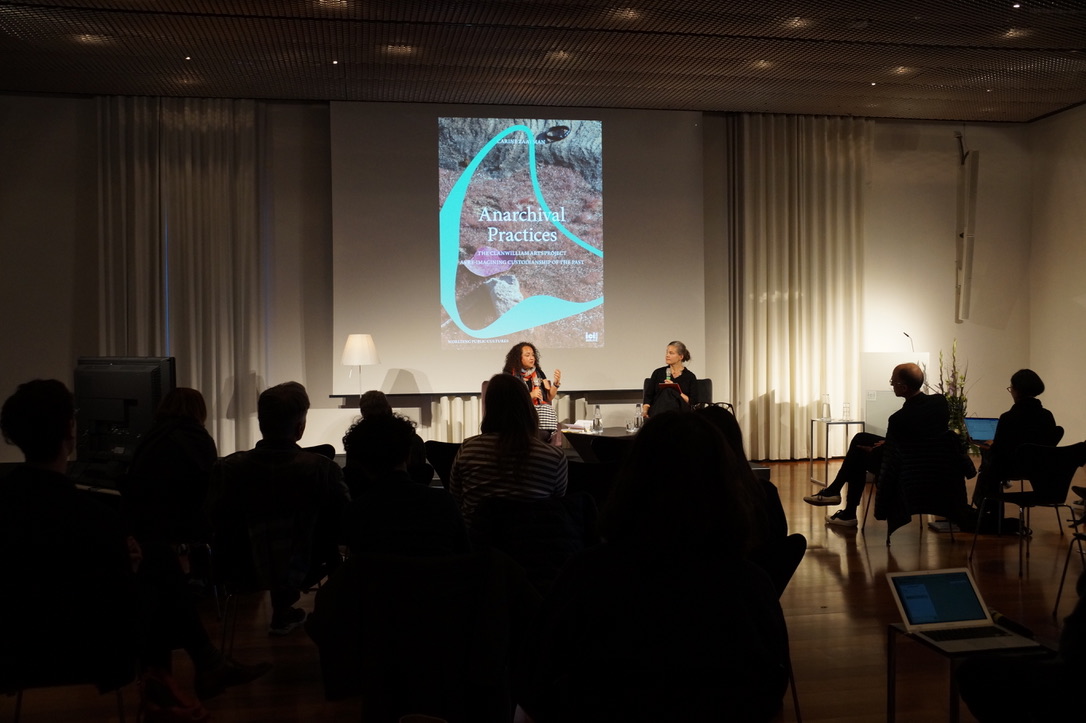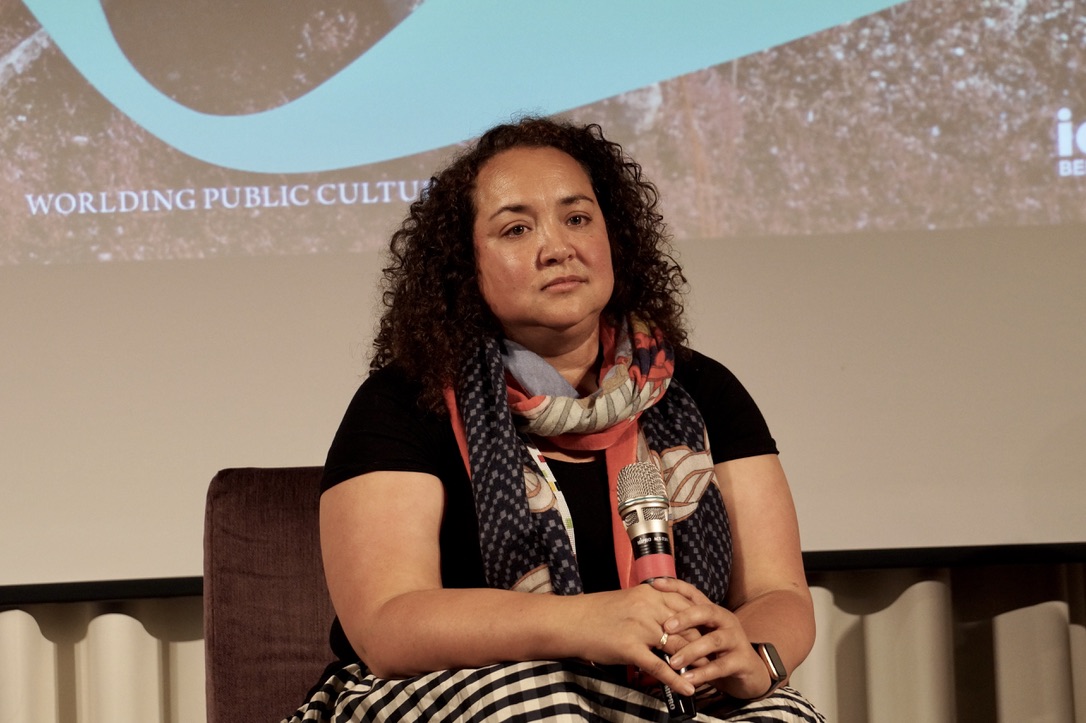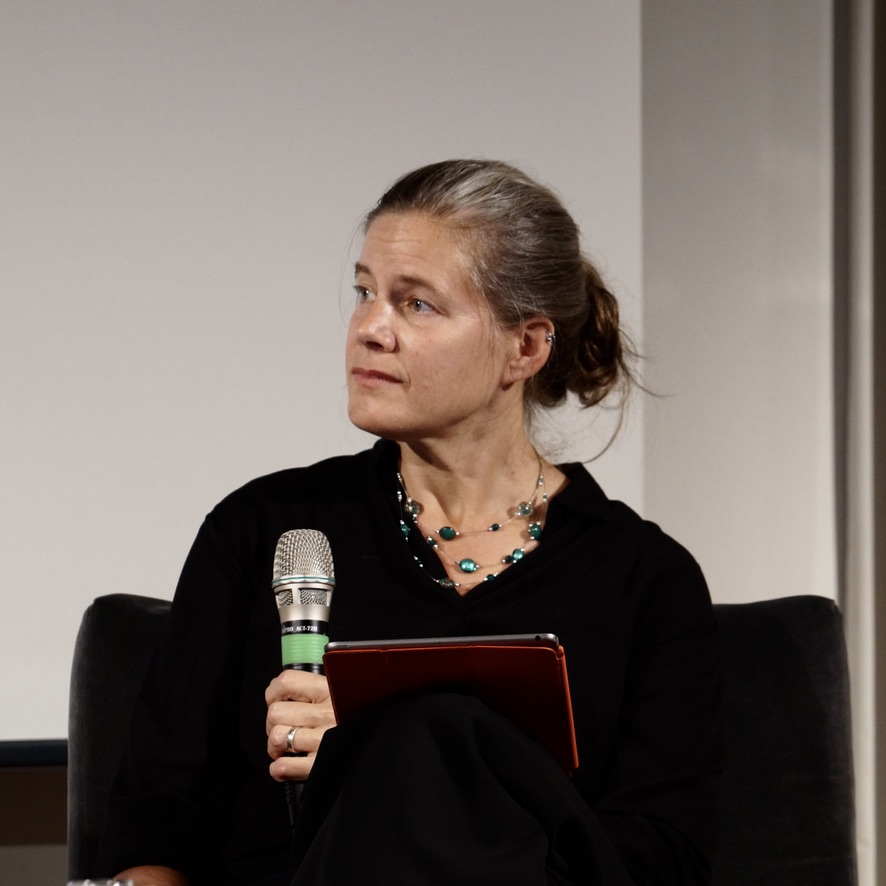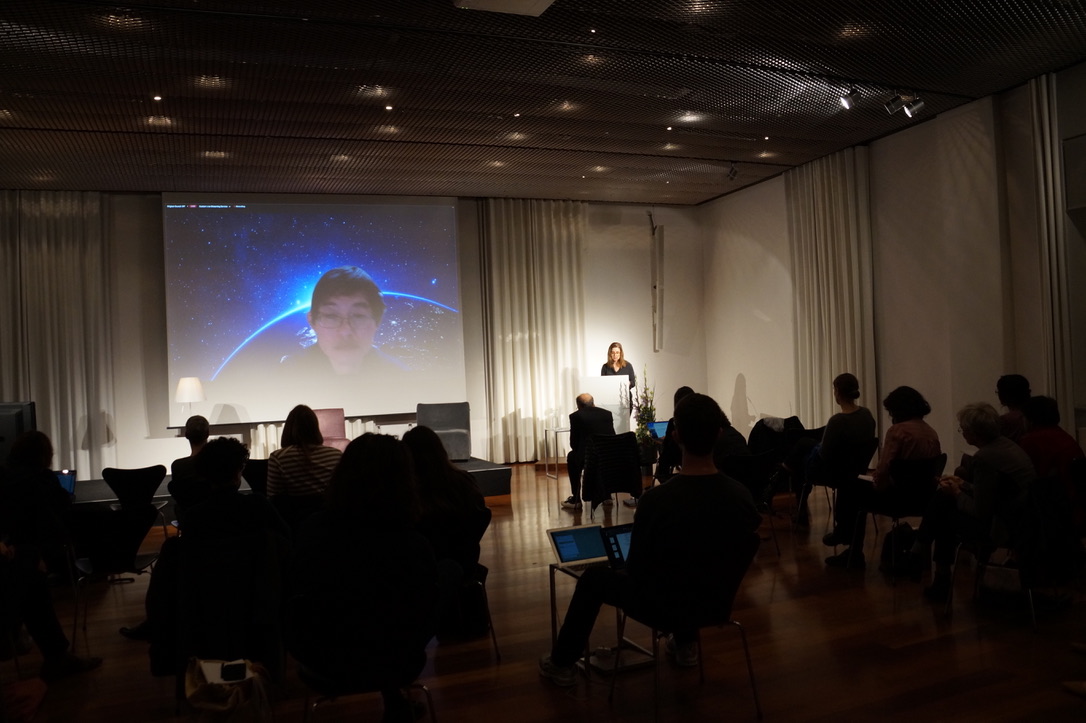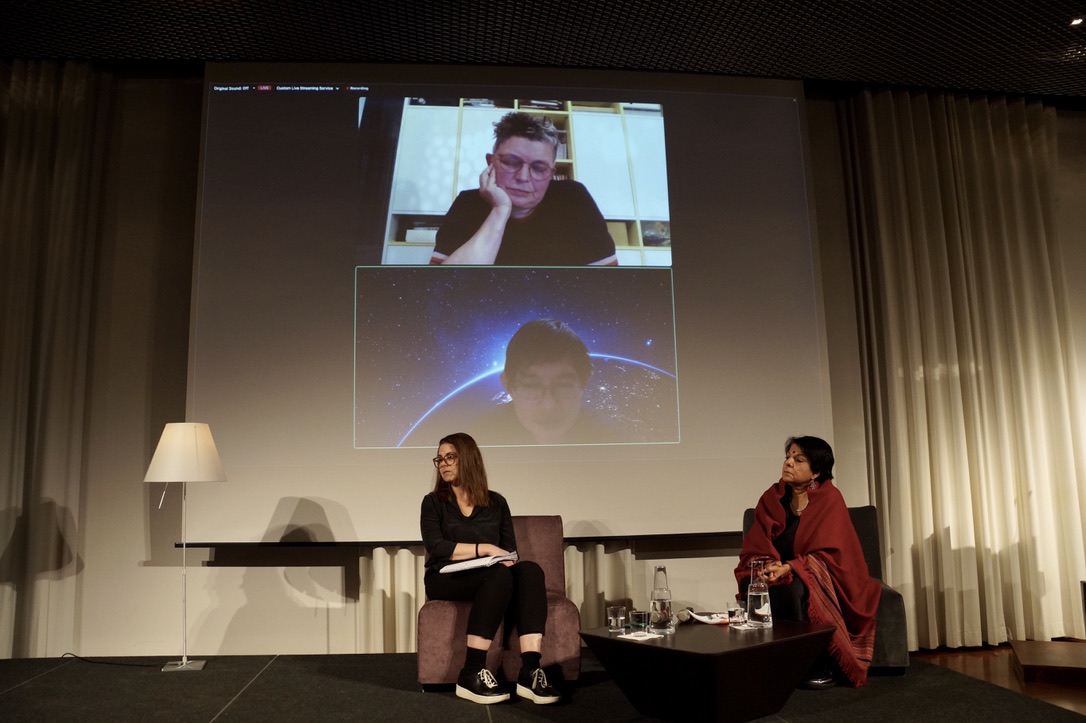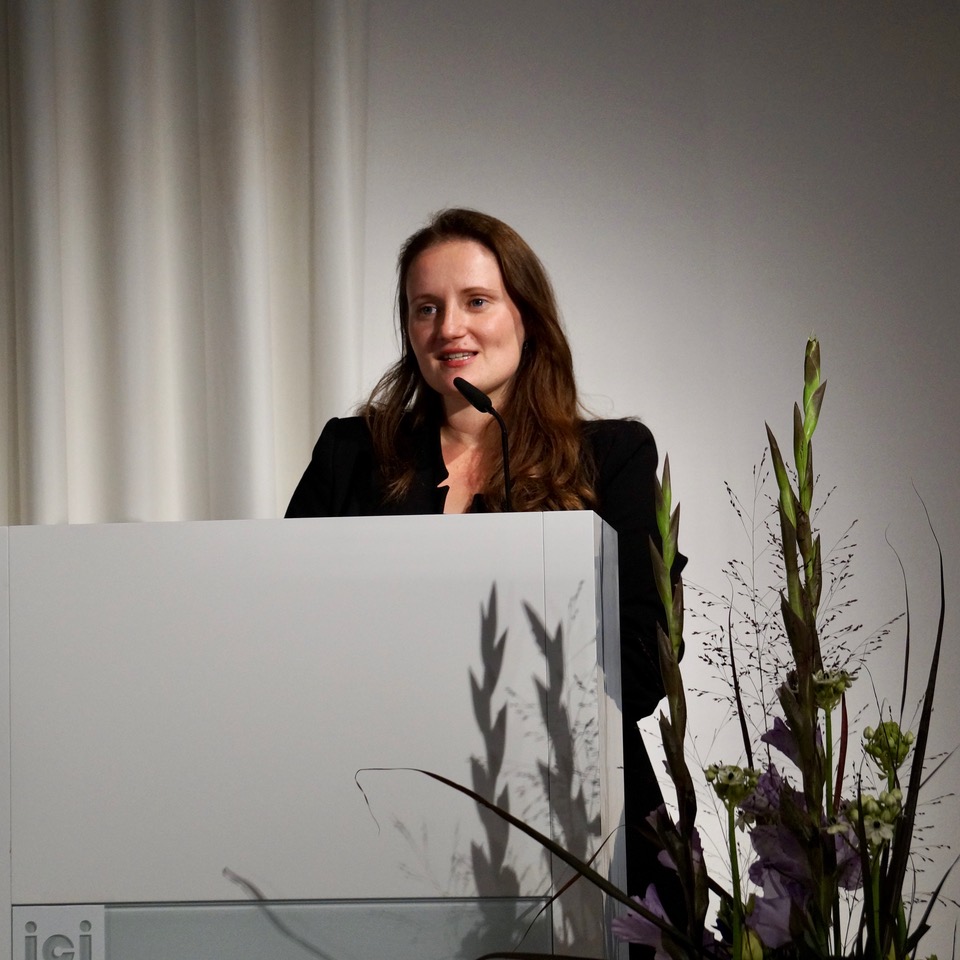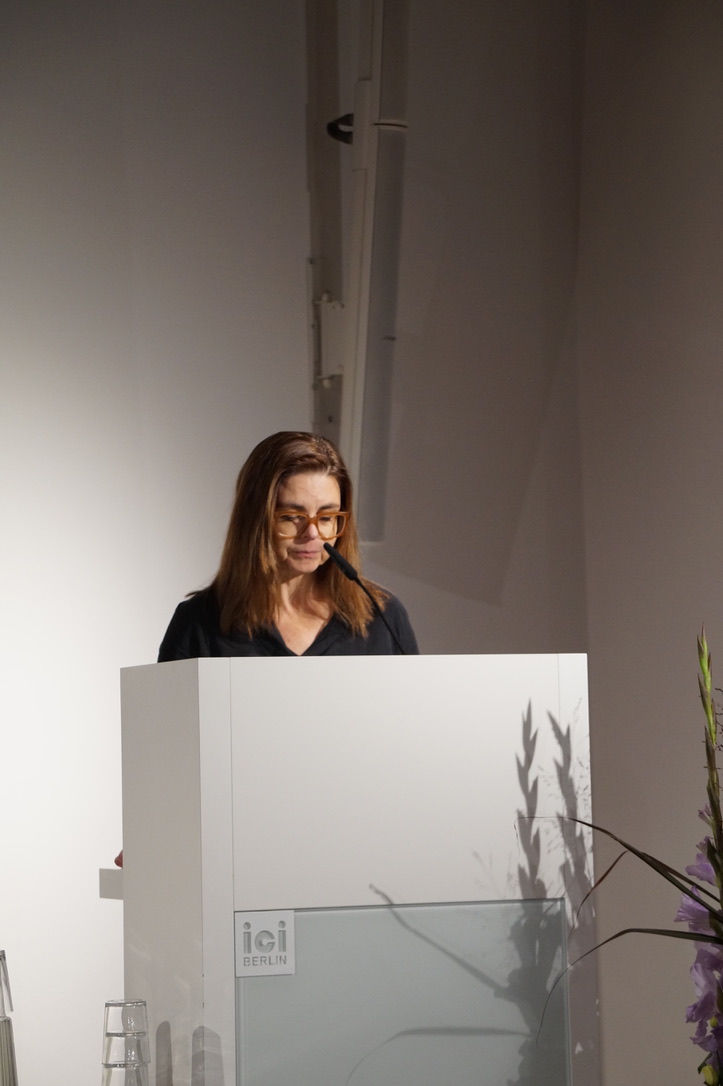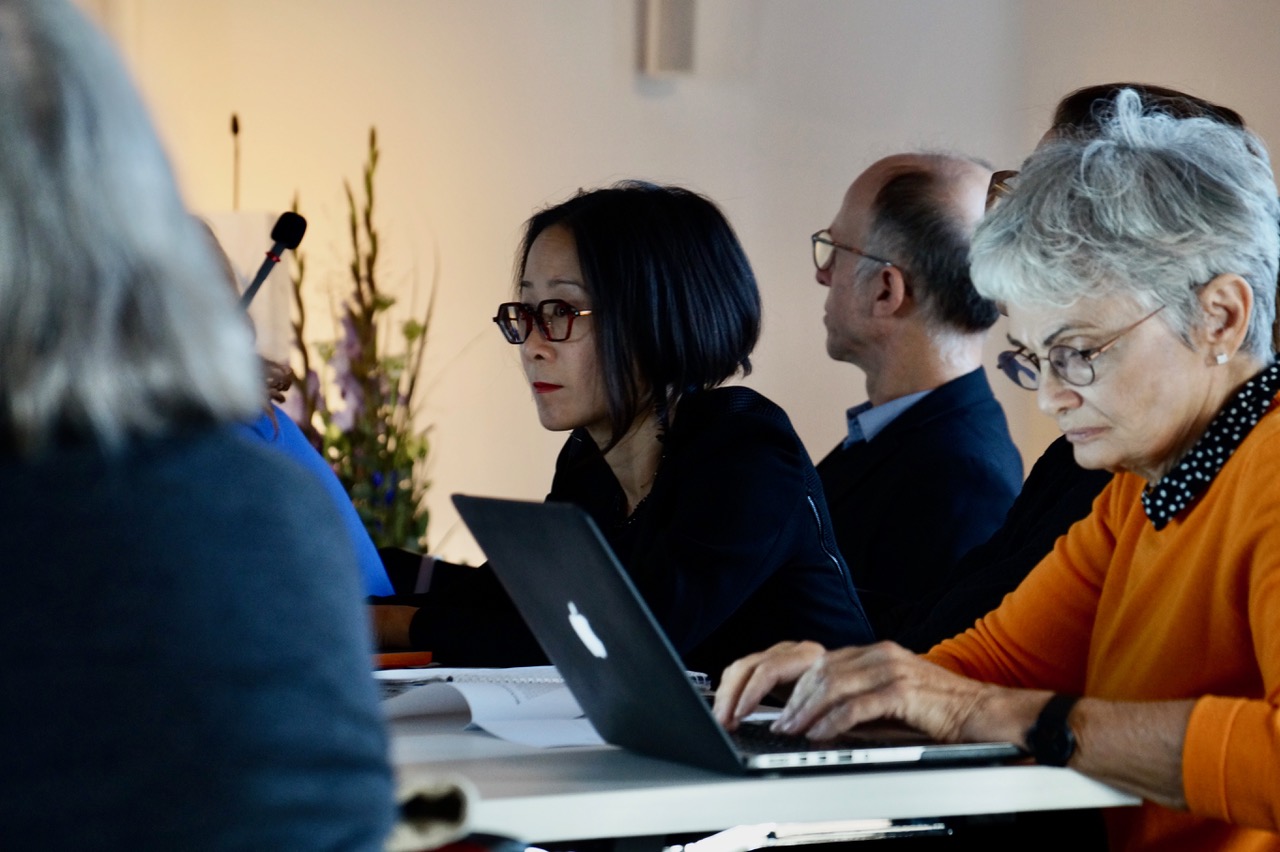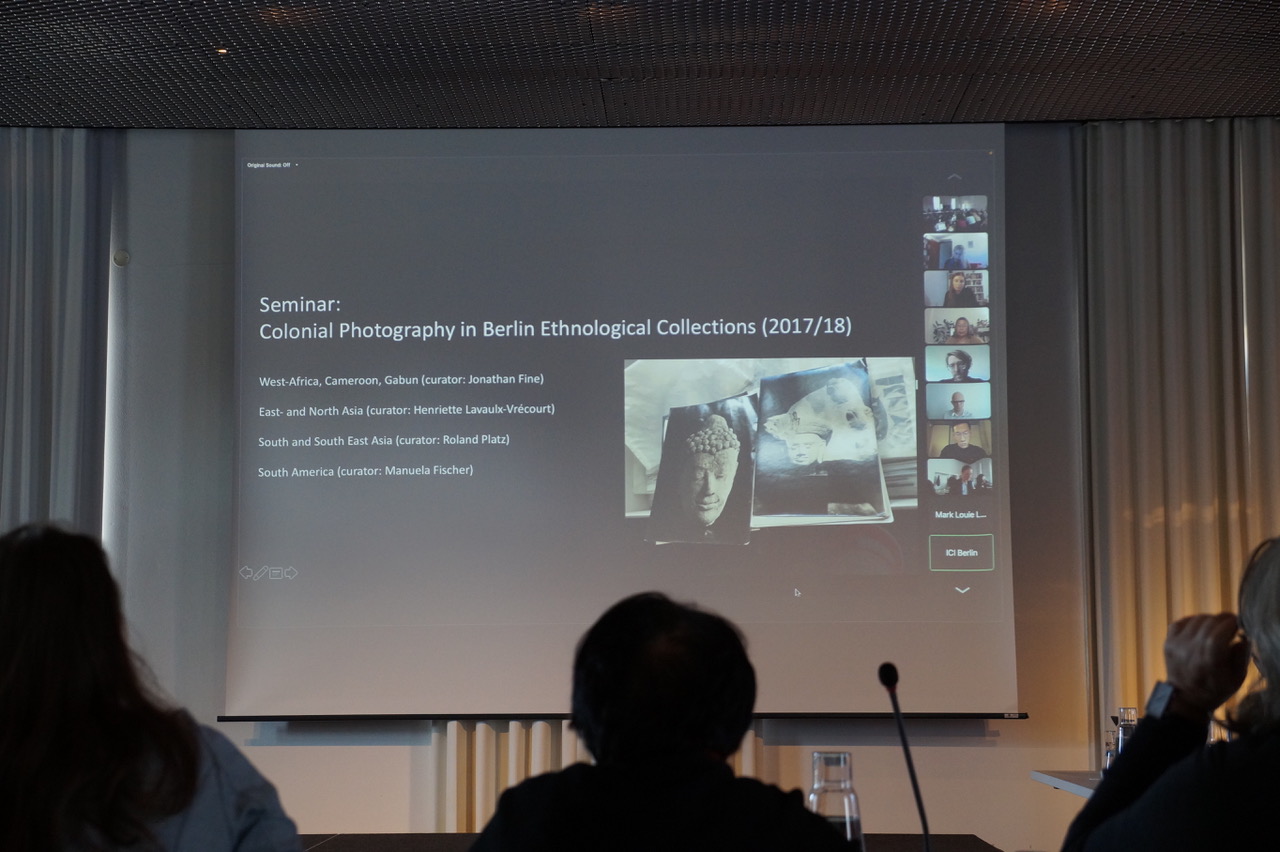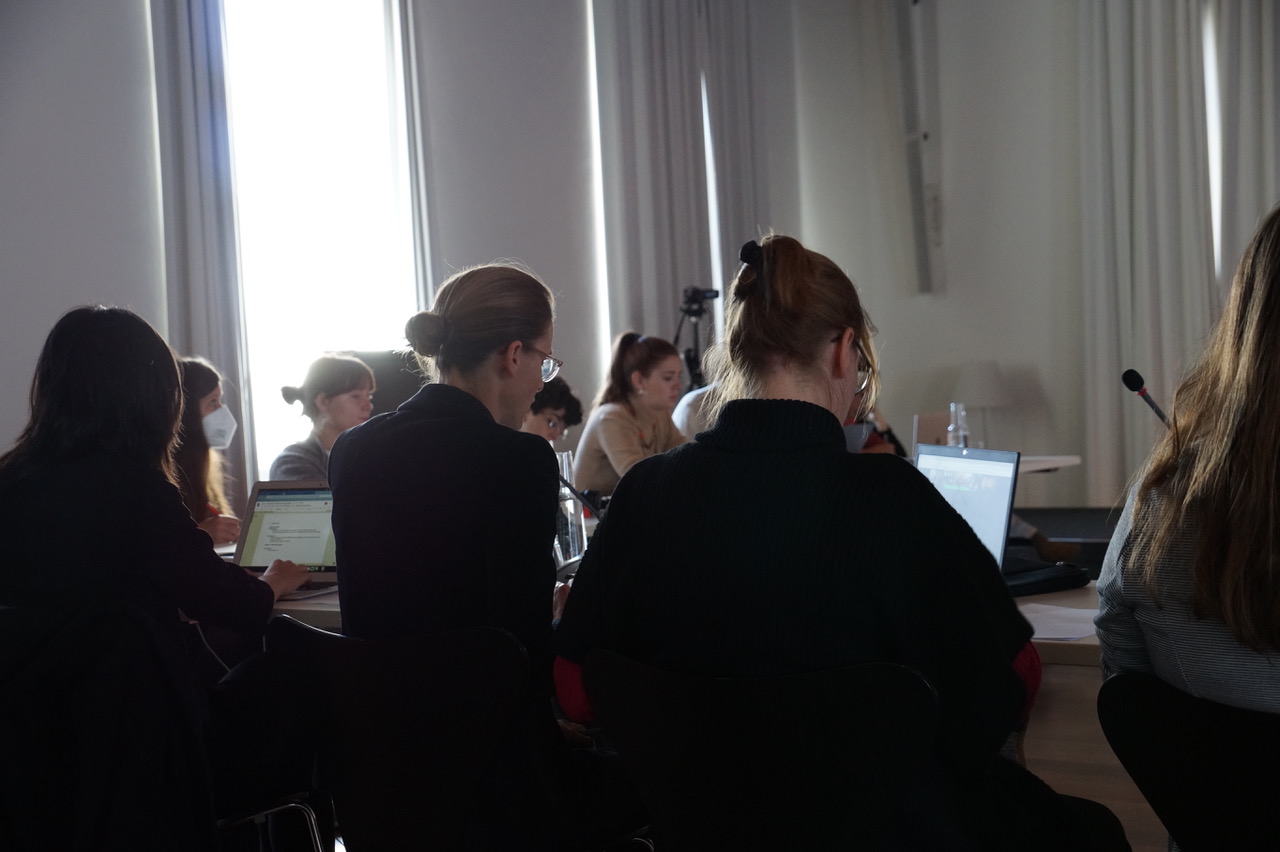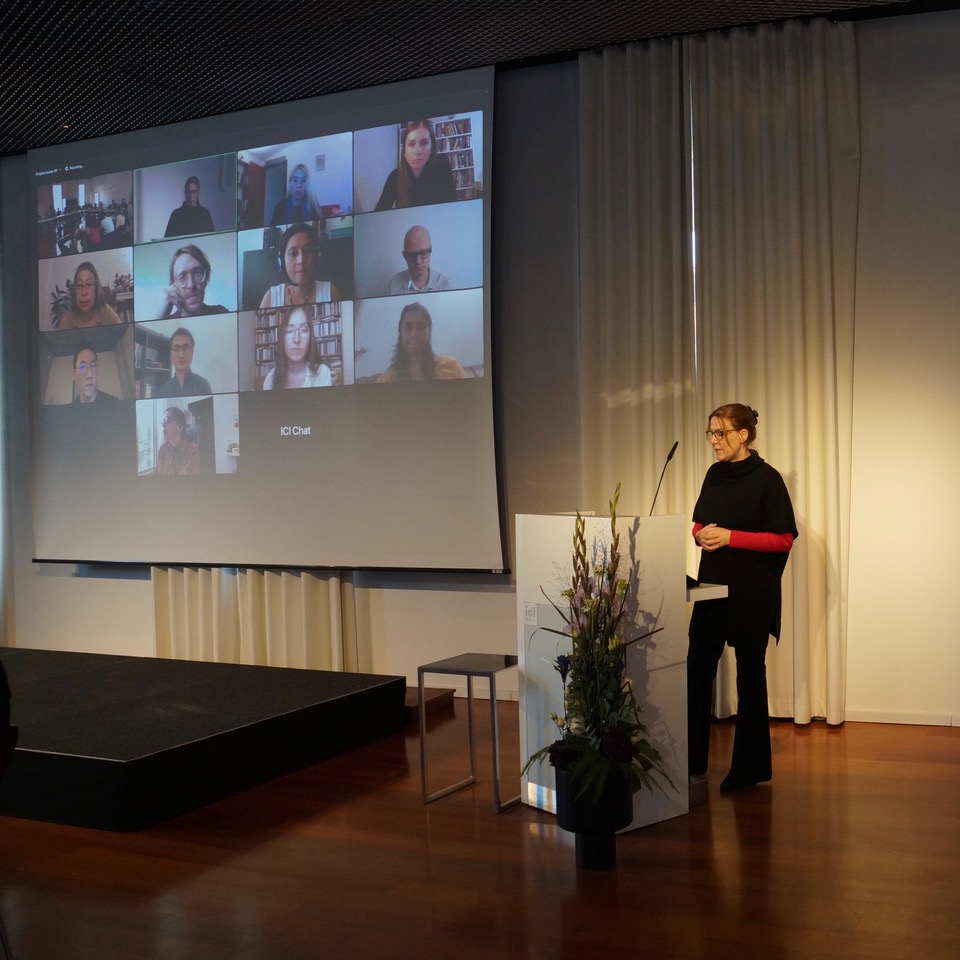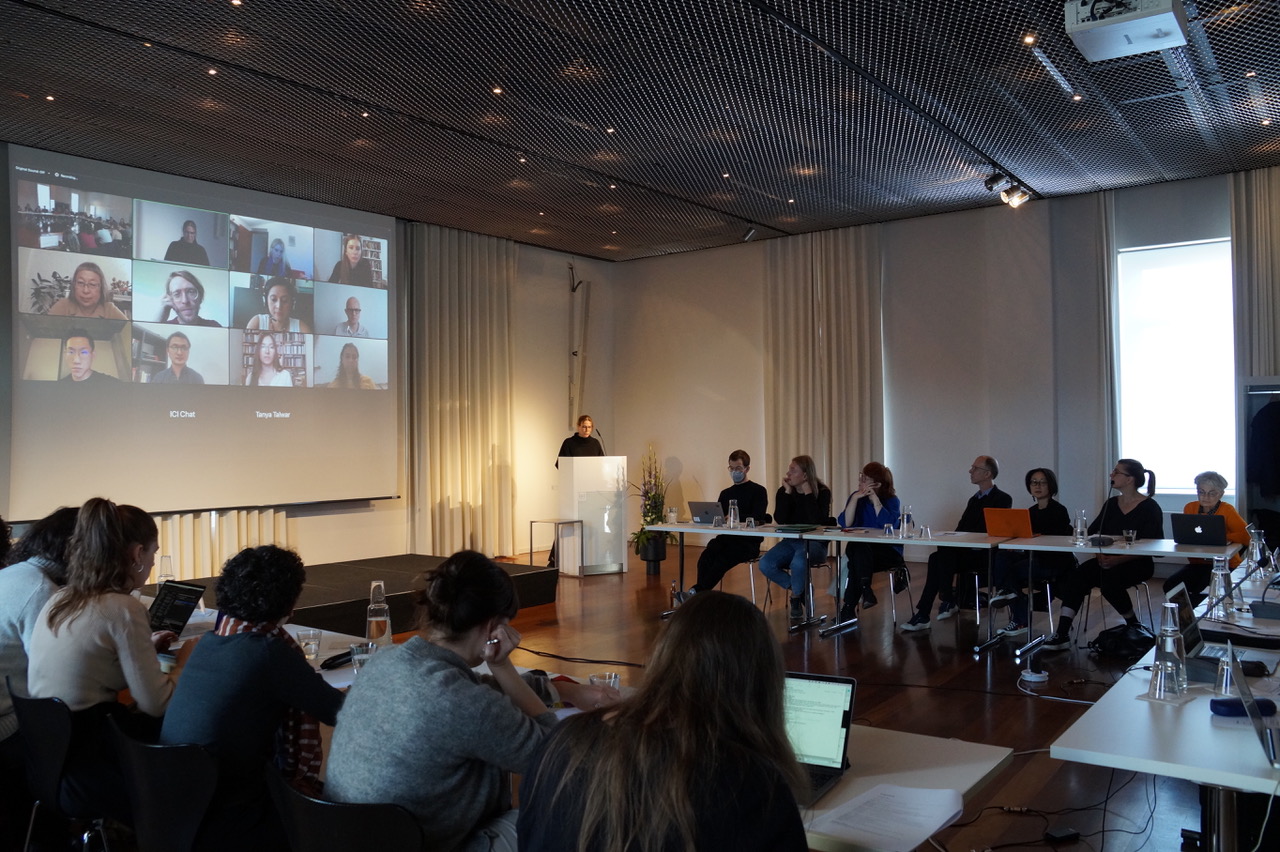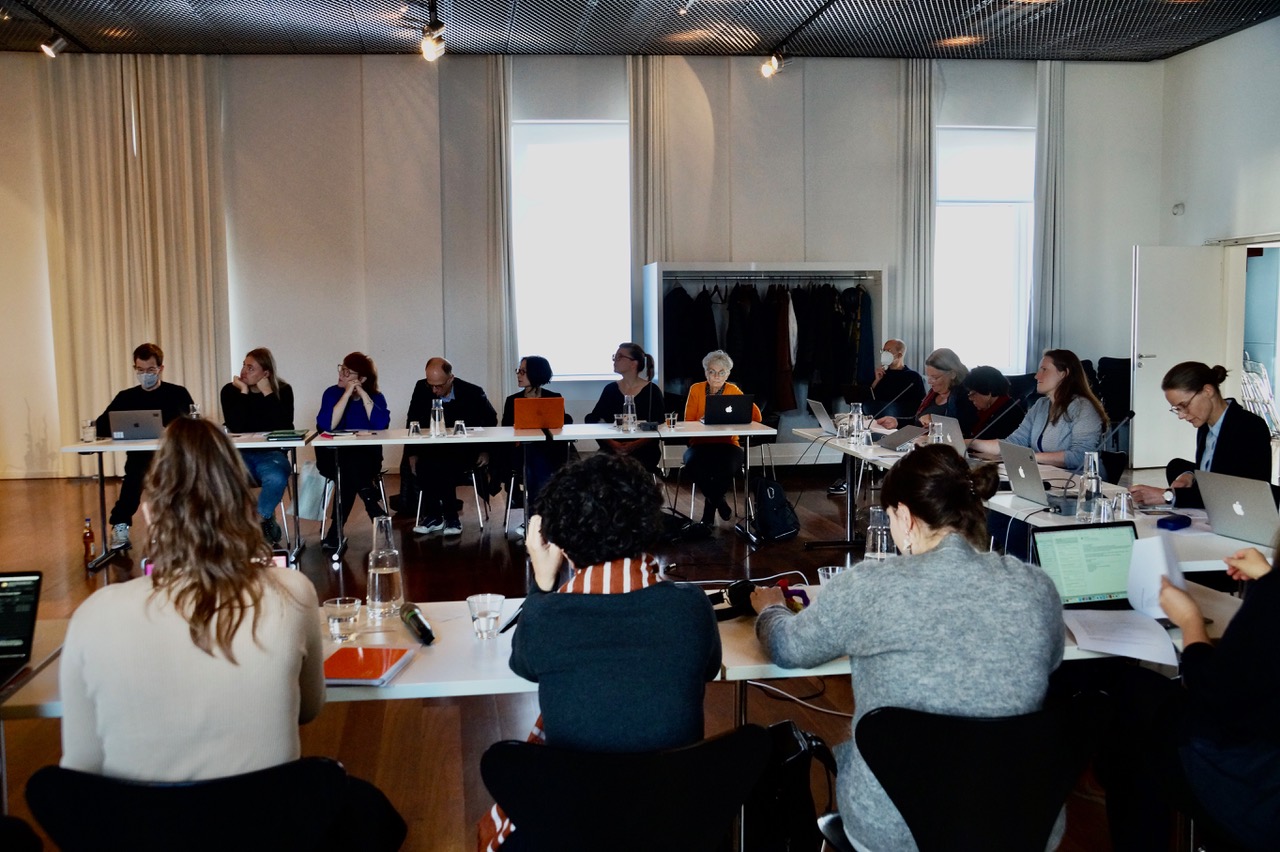Location: Online and in-person at the Japanisches Palais, Staatliche Kunstsammlungen Dresden (SKD), Palaisplatz 11, 01097 Dresden, Germany
Conceptualised and organised by Heidelberg University’s team of Worlding Public Cultures: The Arts and Social Innovation
14-16 July 2022
As the drive to expand, explore and inform museum collections through global histories gains momentum, a pressing question remains: what is the role of art historical pedagogy in the museum? The concept of pedagogy is etymologically posited on the distinction between an adult and a child, and privileges teaching over learning. In past decades, there has been a decisive move to rethink the role of museums away from teaching through visuality (Svetlana Alpers) towards becoming sites of emancipatory and critical learning. Exhibitions such as the Documentas X and XI (curated by Catherine David in 1997 and Okwui Enwezor in 2002 respectively) or the iteration of Havana Biennale directed by Gerardo Mosquera in 1989, adopted open transactions across curating, learning and teaching. In addition, a growing number of cross-disciplinary platforms and collectives across the Global North and South – small in scale, locally anchored, and horizontally organized – have brought forth radical modes of cultural critique and transnational networks opposing exploitation, precarity, homophobia, militarisation and xenophobia. The radicalism of such “micro-organizations” (Marion von Osten) has now begun to rebound on larger institutions. Presently, a number of museums, particularly in Europe and North America, are introducing forms of self-reflection about audiences and collections.
The international Academy, Lessons Learned? Transcultural Positions in Curating and Pedagogies, explores the successes and failures of existing pedagogical practices in museums, and potentials for new transcultural and ‘worlded’ approaches. Conceptualised by Heidelberg University’s team of the international research platform, Worlding Public Cultures: The Arts and Social Innovation, this Academy unfolds as a three-day series of on-site and virtual discussions and exhibition visits around the SKD from 14-16 July 2022. The SKD museums hold amongst the most important and expansive present-day collections in Germany that speak to histories of transcultural collecting and conservation since the 16th century. Lessons Learned? is integrated into the second edition of SKD’s Transcultural Academy at the Japanisches Palais. This cross-collection initiative will take place in the autumn 2022 with an artists’ residency programme. It aims to rethink its own collections and archives, as well as curatorial forms of presentation based on current debates on decolonisation and the involvement of the public.
The discussions and exhibition visits of the three-day programme, Lessons Learned?, will take place in the Japanisches Palais and talks will be simultaneously streamed online. The programme will conclude with a separate lecture and e-workshop titled Lessons Learned? (Part 2): Rethinking Pedagogies: An ‘Intellectual Space’ for (Un-)Learning Art History on 20 July 2022 (16:00-18:00 CET on Zoom). This will feature a guest lecture by Prof. Emerita Claire Farago, two invited responses and a public discussion on how to (un)learn art history through university teaching.
Public Programme
All times are listed in CET. All talks will take place in English, with German translations available simultaneously live online via Zoom.
Thursday 14 July
13:30 – 13:45 Welcome remarks
Monica Juneja (Heidelberg University / WPC) and Doreen Mende (SKD)
Introduction to Worlding Public Cultures
Ming Tiampo (Carleton University / WPC) and Paul Goodwin (University of the Arts London / WPC)
13:45 – 15:15 Panel 1: Emerging Research on Reciprocal Learning across Art Institutions - Futures of Transcultural Knowing
Introductions: Seung Hee Kim (Heidelberg University / WPC)
Noura Dirani (SKD)
The Transcultural Museum: A Case Study of Collaborative Learning and Exhibiting
Pansee Atta (Carleton University / WPC)
The Moon upon its Fourteenth Night: Embodied archives, gendered histories, and decolonial story-telling practices
Nathalia Lavigne (University of São Paolo)
Occupying the Archives: Agency Over Images and Folksonomy developed through Collaborative Initiatives
Moderator: Moritz Schwörer (Heidelberg University / WPC)
15:15-15:45 Break
15:45 – 17:15 Panel 1: Emerging Research on Reciprocal Learning across Art Institutions - Futures of Transcultural Knowing (cont.)
Introductions: Seung Hee Kim
Silvia Gaetti (GRASSI Museum of Applied Arts)
CULTURAL AFFAIRS. Exhibiting and Mediating Transculturality
Di Liu (University of Cambridge)
Practicing lumbung at documenta 15
Varda Nisar (Concordia University / WPC)
A Case Study of Karachi Art Anti-University (online talk)
Moderator: Franziska Kaun (Heidelberg University / WPC)
19:00 – 20:00 Impulse Discussion: What are Alternative Forms of Research in the Museum?
Friedrich von Bose (SKD) in conversation with Birgit Hopfener (Carleton University / WPC)
Friday 15 July
13:30 – 13:45 Welcome remarks
Moritz Schwörer (Heidelberg University / WPC)
13:45 – 15:00 Panel 2: Recuperating Voices through Museum Collections
Ruth B. Phillips (Carleton University)
Teaching with/in the Museum – Indigenous Collections and Ways of Knowing
Cristina Juan (SOAS, University of London)
Mapping as Re-membering: An Introduction to the Mapping Philippine Material Culture Project
Moderator: Miriam Oesterreich (University of the Arts Berlin)
15:00 – 15:30 Break
15:30 – 17:00 Panel 3: (Re)Thinking through Exhibitions
Claire Farago (University of Colorado Boulder)
‘Scraps as it were’: Binding Memories. Modelling "Decolonial" Museum Practices through a Case Study (online talk)
Maria Silina (Université du Québec à Montréal)
Copypasting and Materiality of the Local (online talk)
Moderator: Franziska Koch (Heidelberg University / WPC)
19:00 – 20:00
Impulse Discussion: How do Cultural Institutions Interact with Society?
Léontine Meijer-van Mensch (SKD), Larissa Förster (German Lost Art Foundation) in conversation with Chiara de Cesari (University of Amsterdam / WPC)
Saturday 16 July
10:00 – 10:15 Welcome remarks
Eva Bentcheva (Heidelberg University / WPC)
10:15 – 11:30 Panel 4: Identifying Problem Spaces and Absences in Archives
Carine Zaayman (Vrije University Amsterdam / WPC)
Anarchive and Repertoire
Doreen Mende (SKD)
Geopolitics of Exhibiting: A Transhistoric Pharmakon through a Sealed Envelope of 1985
Moderator: Paul Goodwin (University of the Arts London / WPC)
11:15 – 11:45 Break
11:45 – 12:30 Panel 5: Situating Art in Communities and Contexts
Sarah Hegenbart (Technical University Munich)
Differences within Communities: The Decolonial Museum as Platform for Forming Alliances
Nuraini Juliastuti (University of Amsterdam / WPC)
Contextual Education and Commons Museum: On 'Jet Lag', the Impossible School, and a Pedagogy Model which Teaches Us to Stay (online talk)
Moderator: Eva Bentcheva (Heidelberg University / WPC)
19:00 – 20:00 Impulse Discussion: Lessons Learned? How to ‘World’ our
Epistemes
Paul Goodwin (University of the Arts London / WPC), Monica Juneja (Heidelberg University / WPC), Eva Bentcheva (Heidelberg University / WPC), Doreen Mende (SKD), Ming Tiampo (Carleton University / WPC)
Wednesday 20 July (follow-up event)
16:00 - 18:00 Lessons Learned? (Part 2):
A guest lecture by Prof. Emerita Claire Farago (University of Colorado Boulder) and e-workshop 'Rethinking Pedagogies: An ‘Intellectual Space’ for (Un-)Learning Art History'
Registration:
The Academy from 14-16 July will take place in person at the Japanisches Palais. For on-site participation, please register on the website of SKD: https://japanisches-palais.skd.museum/en/frei-raeume/transkulturelle-akademie/
The conference will also be broadcast live (no registration required) over the following Zoom link:
https://braehler.zoom.us/j/84579538815?pwd=UmtIRWlEMnZ3c1NwWWVSRHoyc1RKdz09Passcode: 776935
Information on Lessons Learned? (Part 2) is available on the WPC Heidelberg webpage: https://www.asia-europe.uni-heidelberg.de/index.php?id=5128
To register for Lessons Learned? (Part 2), please contact Madeleine Eppel (madeleine.eppel@stud.uni-heidelberg.de)
Credits:
Concept and organisation of the Academy Lessons Learned? is by the Worlding Public Cultures team of Heidelberg University (Monica Juneja, Franziska Koch, Eva Bentcheva, Miriam Oesterreich, Franziska Kaun, Moritz Schwörer, Seung Hee Kim and Costina Mocanu).
'Lessons Learned? Transcultural Perspectives in Curating and Pedagogies' is organised as part of the second edition of SKD’s Transcultural Academy, ‘Toward a Worlded Public’, which will take place in three parts at Japanisches Palais from July to November 2022. This is developed as a partnership between the Research Department and the Staatliche Ethnographische Sammlungen Sachsen (State Ethnographic Collections) of the SKD (Noura Dirani, Leontine Meijer-van Mensch, Doreen Mende, Anna-Lisa Reith).
Funding:
'Lessons Learned? Transcultural Perspectives in Curating and Pedagogies' is part of the public programme of Worlding Public Cultures: The Arts and Social Innovation (WPC), an international research platforum funded by a Social Innovation Grant from the Trans-Atlantic Platform for the Social Sciences and Humanities and (within Germany) by the Federal Ministry of Education and Research (BMBF/DLR Project Management Agency).
The Transcultural Academy of the SKD is generously funded by the Federal Government Commissioner for Culture and the Media.
WPC partner institutions:
The WPC platform brings together several institutions that pioneer transnational and transcultural research in the fields of art at Carleton University (Canada), Concordia University (Canada), the University of Montréal (Canada), the University of Quebec in Montréal (Canada), the University of the Arts London (UK), Heidelberg University (Germany), the University of Amsterdam (Netherlands), and Vrije Universiteit Amsterdam (Netherlands). WPC is the first funded project of the international consortium Transnational and Transcultural Arts and Culture Exchange (TrACE).
